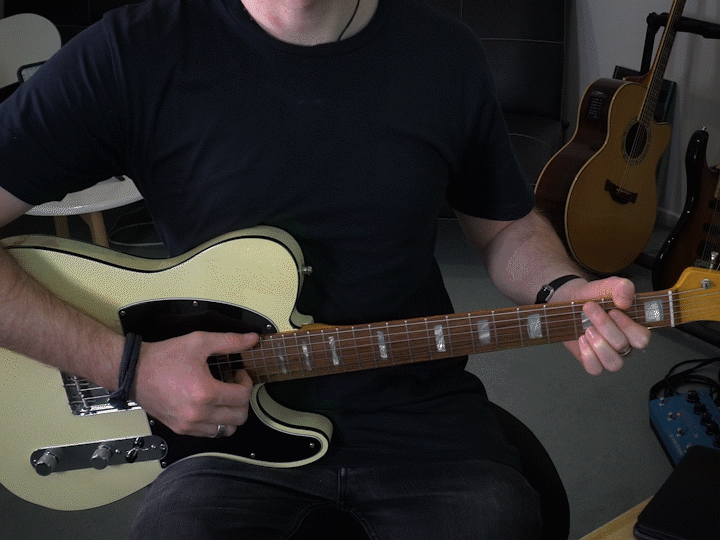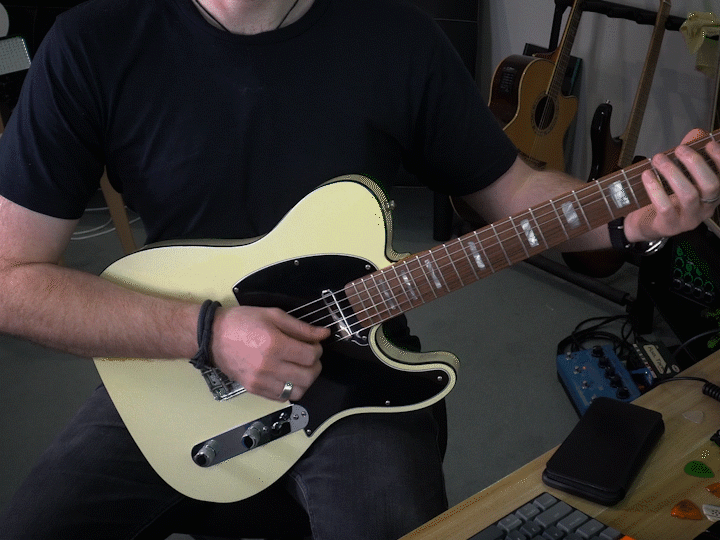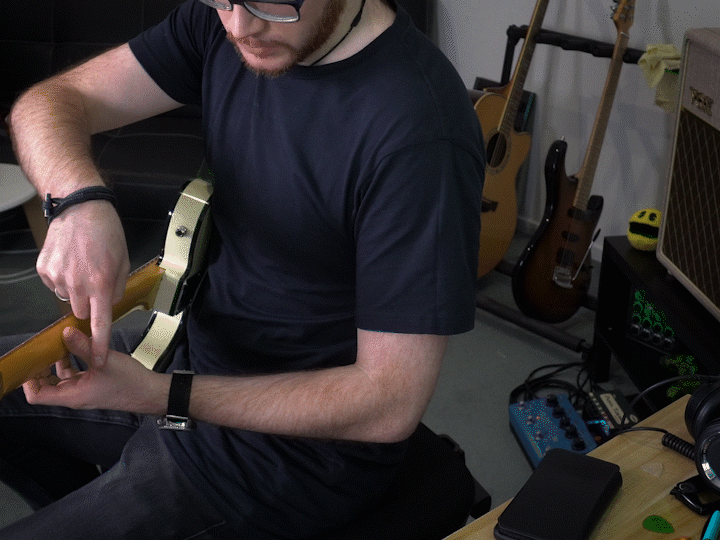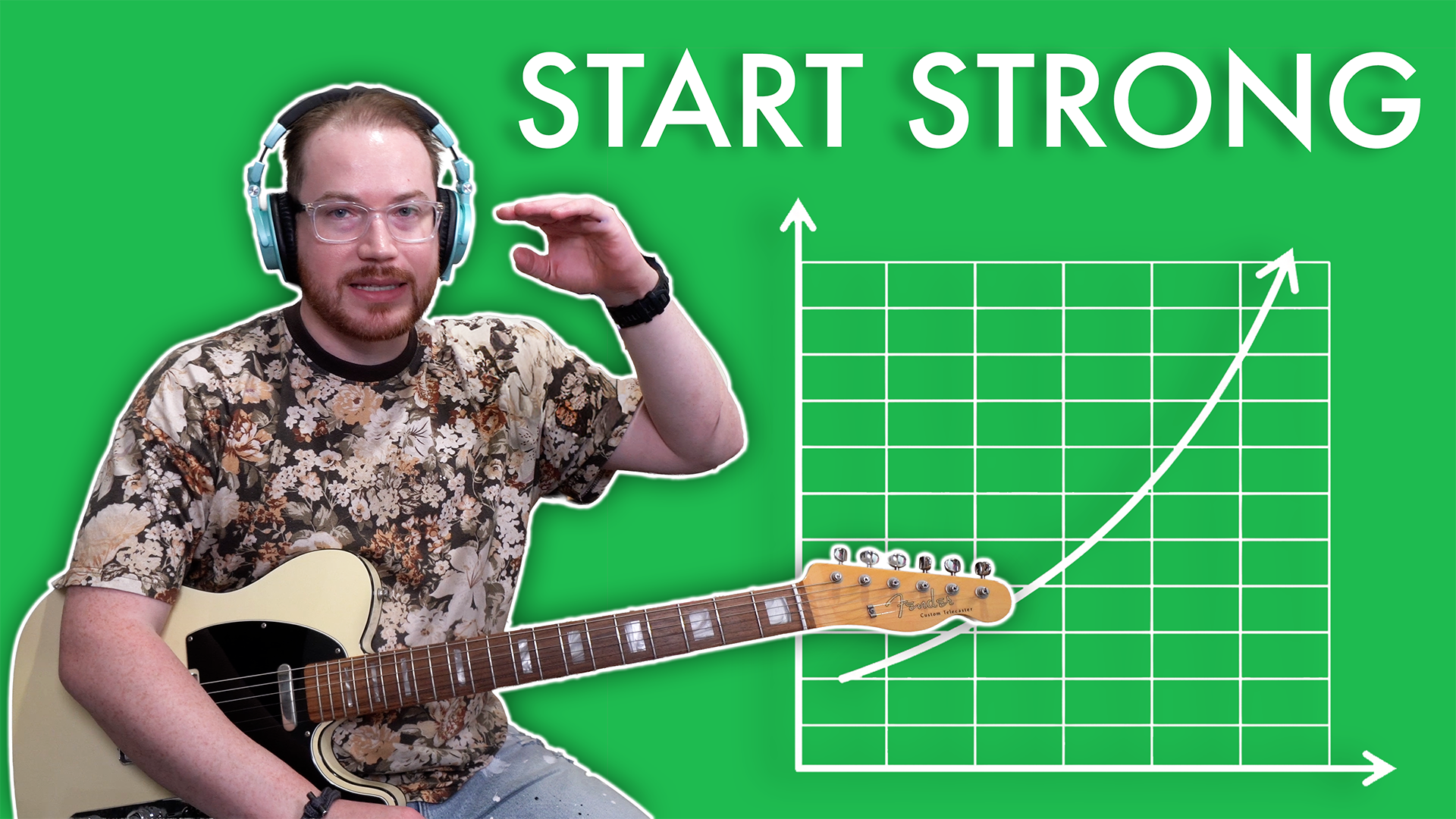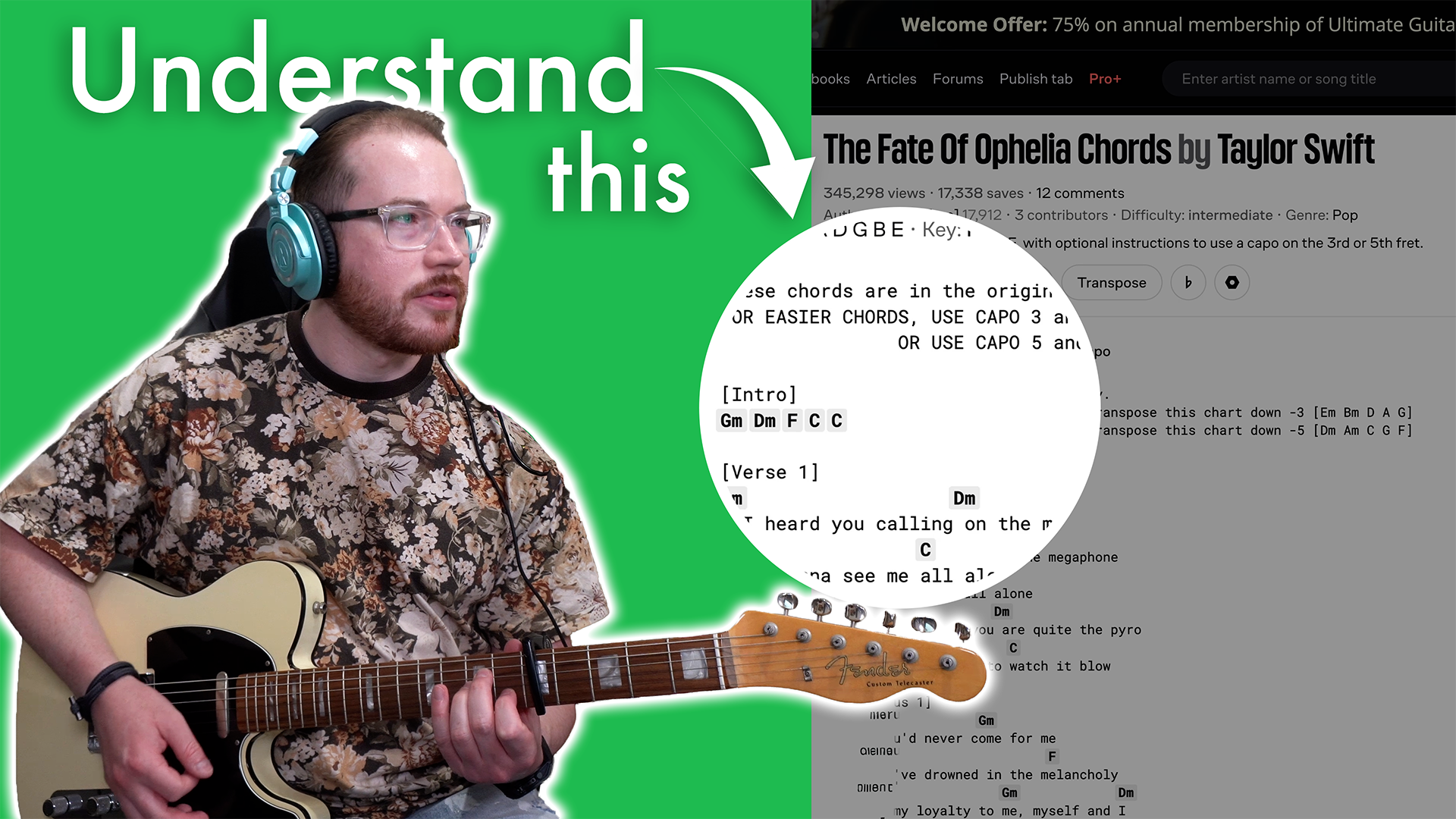Are you playing the guitar safely?
Are you using your shoulders correctly?
When you play the guitar, it’s important to make sure you’re sitting correctly.
Keep a nice straight back
Don’t lean over your instrument or slouch
Keep your shoulders in a neutral position
When we picture someone holding a guitar, we often think of it being held flat against the body. However, holding it like this will result in the body of the instrument pulling your shoulders forward. It’s actually much more comfortable (and better for your posture) to hold the guitar on a 45-degree angle to your body.
You can also rest the body of the guitar on your left leg, which is actually the best possible position for maintaining a neutral posture. It doesn’t look quite as ‘cool’, but it’s actually a lot more comfortable and is a position you’ll often see serious players adopting.
When I was a kid, I developed RSI (Repetitive Strain Injury) in both my arms from playing too many computer games with bad posture. I had to visit the physio to get this all fixed, but ever since then, I’ve been really big on learning how to maintain a safe posture when playing the guitar. While you are unlikely to cause serious damage if you’re a beginner or someone who only plays a little every day, you might be doing other things in your life that could lead to some kind of RSI. You don’t want things to stack and possibly cause problems later on.
When you do this it’s basically meditation
As you’re playing the guitar, try to be aware of what your body is actually doing. How are you feeling? The more relaxed you can be, the more effectively you will play the guitar. It takes practice to become aware of what you’re doing. But, as you’re playing, notice if there is any tension in your body and try to let it go. Stay relaxed as much as possible. Guitarists have a chronic desire to play fast, and beginner guitarists will often tense up the muscles in their arms and shoulders trying to do this. Ironically, impressive speed can only actually be developed if you are 100% relaxed. Develop an awareness of your body when you’re playing the guitar. Stay relaxed. Speed will come with time.
Do this with your left hand to prevent RSI
When you’re playing you want to try and keep a straight line between your fingers and your elbow. This prevents you from cutting off any nerves and keeps everything in your arm moving well. While it isn’t always possible to maintain this position with our wrist, we want to try and maintain this line through our arm as much as we can when we are playing. Note: I’m not a physio or a medical professional. Please consult with your doctor if you are experiencing pain as a result of playing the guitar.
Did you know guitars are not pianos?
Obviously, guitars are not pianos. But, why are they different? Pushing down a key on the piano requires very little effort, whereas the strings of the guitar are under tension. When we push down a guitar string, we are basically lifting weights. Just like you have to train at the gym to be able to carry more weight, we have to train the muscles in our hands and fingers to be able to hold that weight of the guitar strings when we are playing the instrument. We don’t immediately get gifted the strength and dexterity required to play the guitar the moment we decide we want to learn (even though that would be amazing!). It’s something we have to develop over time. It’s going to be tough starting out. But we just need to be patient with ourselves while we are developing strength and dexterity. Too many students beat themselves up because their chords don't sound great in the first lesson. That’s okay. Remember, everyone has a different learning curve.
Mental bandwidth
We only have so much focus to apply to certain things when we are playing the guitar. If all our focus is taken up playing a pretty sounding chord but we still need a certain amount to strum, then we are going to have some issues. Many students think that if they can do both things well separately, they should be able to do both things well together. But what they don't realise is that they needed their full focus in order to do each of the things separately. Now they are trying to do two things, they will have to split their focus two ways and the performance of both will suffer. That’s okay. As you get better you won’t require so much focus in order to do each aspect well. You’ll start to find you can do both things within the amount of mental bandwidth you have. I’ve seen far too many students beat themselves up because they think they should be able to do something, like playing good sounding chords and strumming. But they don't understand the amount of focus that is required to simply do the first thing (just play good sounding chords).
Don’t worry about accuracy
When a student first learns that certain chords are strummed using only some of the strings, they usually make an effort to be super accurate and strum only the strings that need to be played. This is great. However, they often end up being too careful and this can become a problem. In these situations, the student often begins to compromise their ability to develop good strumming techniques because they are focusing too much on trying to only strum certain strings. Try your best to be accurate, but don’t worry about it! You will develop accuracy over time. As we get more advanced we will actually develop muting techniques that will make things a lot cleaner later on. Don’t worry about it being a little rough at the start. It’s more important that we refine a correct strumming technique than fix a wrong one. This is something that I see tripping up so many students and people online. Over the years, I’ve taught so many students who have come to me because they are self-taught and feel like they have hit a wall in their playing. We often have to spend quite a bit of time correcting wrong techniques that they have developed over years of doing it the wrong way. It’s always going to be a little rough when you’re starting out. But that’s okay, we can refine your playing as you develop strength and dexterity. But if it’s completely wrong to begin with, it can’t be refined. We have to fix it before we can even start.
Stop practising the guitar (unless it’s effective)
If we are practising ineffectively, we will cause significant problems for ourselves. If our mind is on something else, we won’t be focussed on what we are trying to achieve on the guitar. If your head is not in the game, go do something else and come back later. We don’t’ want to develop bad technique and the wrong kind of muscle memory. We shouldn’t practise unless it’s effective practice.
Maybe it’s a little bit of a hangover from the days when you had to come home from school and do your 30-minutes of piano practice. We all have busy lives, so make sure we use the time we do have to practice effectively. However, It’s not always practical to get your practice in. I had a student once who didn’t’ practise at all because he was stupidly busy at work. But, he kept coming to his lessons and he still made progress in the period of a month. Even if a student isn’t able to practice during the week, I’d much rather them come to their lesson than feel bad they haven’t done anything and think it will be a write-off. The lesson is our opportunity to bring to mind the concepts we’re working on, making sure we still have the right mental strategy for learning and keeping key ideas front and centre. Even though my student literally did no practice during the week, he made progress. As his life gets less busy, he’s going to be able to put more practice in and progress more quickly. It’s more important to do quality practice than quantity practice. If you literally only have 60 seconds, spend those 60 seconds practising effectively.
Getting the right mindset
It’s basically impossible to make backwards progress on the instrument. As long as you are doing the right things in pretty much the right order you will make progress and your movements on the instrument will become fluent. Sure it might take longer if you have a busy life but it doesn’t matter. Playing the guitar is a skill you will be developing for the rest of your life; you never stop learning! Don’t worry if there is a month or a week that you can’t practice. Taking a month off doesn’t make you any less of a guitar player. You can jump right back into it when you have more time!
I’ve had a lot of students in the past tell me they don’t have a sense of rhythm. But, I fundamentally disagree with this statement. You see, everyone can walk and walking is a rhythmic activity. People are able to fall into a rhythm and walk beside somebody. That requires a sense of rhythm. Most people can also pretty accurately count seconds. Again, a sense of rhythm. Music is just like that but there are more variables. Everyone has a sense of rhythm. Musicians have just developed their sensitivity to it. All of my students in the past who have told me they have no sense of rhythm all made progress. Some faster than others, but all of them made progress and developed their sense of rhythm.

